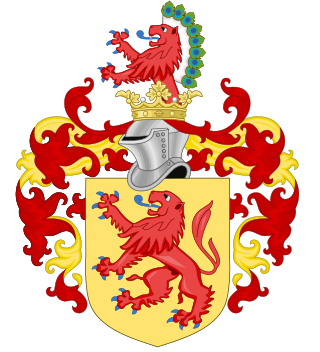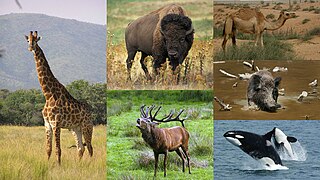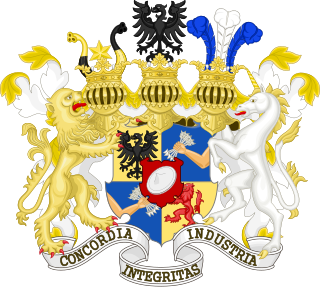
Confucius, born Kong Qiu (孔丘), was a Chinese philosopher of the Spring and Autumn period who is traditionally considered the paragon of Chinese sages, as well as the first teacher in China to advocate for mass education. Much of the shared cultural heritage of the Sinosphere originates in the philosophy and teachings of Confucius. His philosophical teachings, called Confucianism, emphasized personal and governmental morality, correctness of social relationships, justice, kindness, sincerity, and a ruler's responsibilities to lead by virtue.

The House of Habsburg, also known as the House of Austria, is one of the most prominent and important dynasties in European history.

Jane Austen was an English novelist known primarily for her six novels, which implicitly interpret, critique, and comment upon the British landed gentry at the end of the 18th century. Austen's plots often explore the dependence of women on marriage for the pursuit of favourable social standing and economic security. Her works are an implicit critique of the novels of sensibility of the second half of the 18th century and are part of the transition to 19th-century literary realism. Her deft use of social commentary, realism and biting irony have earned her acclaim among critics and scholars.

A language family is a group of languages related through descent from a common ancestral language or parental language, called the proto-language of that family. The term family is a metaphor borrowed from biology—with the tree model used in historical linguistics analogous to a family tree, or to phylogenetic trees of species used in evolutionary taxonomy. Linguists thus describe the daughter languages within a language family as being genetically related. The divergence of a proto-language into daughter languages typically occurs through geographical separation, with different regional dialects of the proto-language spoken by different speech communities undergoing different language changes and thus becoming distinct languages from each other.

Charles Milles Manson was an American criminal, cult leader and musician who led the Manson Family, a cult based in California, in the late 1960s. Some of the members committed a series of at least nine murders at four locations in July and August 1969. In 1971, Manson was convicted of first-degree murder and conspiracy to commit murder for the deaths of seven people, including the film actress Sharon Tate. The prosecution contended that, while Manson never directly ordered the murders, his ideology constituted an overt act of conspiracy.
The British royal family comprises King Charles III and his close relations. There is no strict legal or formal definition of who is or is not a member, although the Royal Household has issued different lists outlining who is a part of the royal family. Members often support the monarch in undertaking public engagements, and pursue charitable work and interests. Members of the royal family are regarded as British and world cultural icons.

Artiodactyls are placental mammals belonging to the order Artiodactyla. Typically, they are ungulates which bear weight equally on two of their five toes: the third and fourth, often in the form of a hoof. The other three toes are either present, absent, vestigial, or pointing posteriorly. By contrast, most perissodactyls bear weight on an odd number of the five toes. Another difference between the two is that many artiodactyls digest plant cellulose in one or more stomach chambers rather than in their intestine as perissodactyls do. The advent of molecular biology, along with new fossil discoveries, found that cetaceans fall within this taxonomic branch, being most closely related to hippopotamuses. Some modern taxonomists thus apply the name Cetartiodactyla to this group, while others opt to include cetaceans within the existing name of Artiodactyla. Some researchers use "even-toed ungulates" to exclude cetaceans and only include terrestrial artiodactyls, making the term paraphyletic in nature.

Family is one of the nine major hierarchical taxonomic ranks in Linnaean taxonomy. It is classified between order and genus. A family may be divided into subfamilies, which are intermediate ranks between the ranks of family and genus. The official family names are Latin in origin; however, popular names are often used: for example, walnut trees and hickory trees belong to the family Juglandaceae, but that family is commonly referred to as the "walnut family".

A surname, family name, or last name is the mostly hereditary portion of one's personal name that indicates one's family. It is typically combined with a given name to form the full name of a person.

The Airbus A320 family is a series of narrow-body airliners developed and produced by Airbus. The A320 was launched in March 1984, first flew on 22 February 1987, and was introduced in April 1988 by Air France. The first member of the family was followed by the stretched A321, the shorter A319, and the even shorter A318 . Final assembly takes place in Toulouse in France; Hamburg in Germany; Tianjin in China since 2009; and Mobile, Alabama in the United States since April 2016.

The Rothschild family is a wealthy Ashkenazi Jewish noble banking family originally from Frankfurt that rose to prominence with Mayer Amschel Rothschild (1744–1812), a court factor to the German Landgraves of Hesse-Kassel in the Free City of Frankfurt, Holy Roman Empire, who established his banking business in the 1760s. Unlike most previous court factors, Rothschild managed to bequeath his wealth and established an international banking family through his five sons, who established businesses in London, Paris, Frankfurt, Vienna, and Naples. The family was elevated to noble rank in the Holy Roman Empire and the United Kingdom. The family's documented history starts in 16th century Frankfurt; its name is derived from the family house, Rothschild, built by Isaak Elchanan Bacharach in Frankfurt in 1567.

Family Guy is an American animated sitcom created by Seth MacFarlane for the Fox Broadcasting Company. The series premiered on January 31, 1999, following Super Bowl XXXIII, with the rest of the first season airing from April 11, 1999. The show centers around the Griffins, a dysfunctional family consisting of parents Peter and Lois, their children, Meg, Chris, and Stewie, and their anthropomorphic pet dog, Brian. Set in the fictional city of Quahog, Rhode Island, the show exhibits much of its humor in the form of metafictional cutaway gags that often lampoon American culture.

Sea cucumbers are echinoderms from the class Holothuroidea. They are marine animals with a leathery skin and an elongated body containing a single, branched gonad. They are found on the sea floor worldwide. The number of known holothurian species worldwide is about 1,786, with the greatest number being in the Asia-Pacific region. Many of these are gathered for human consumption and some species are cultivated in aquaculture systems. The harvested product is variously referred to as trepang, namako, bêche-de-mer, or balate. Sea cucumbers serve a useful role in the marine ecosystem as they help recycle nutrients, breaking down detritus and other organic matter, after which bacteria can continue the decomposition process.

Seth Woodbury MacFarlane is an American actor, animator, writer, producer, director, comedian, and singer. MacFarlane is well known as the creator and star of the television series Family Guy and The Orville (2017–2022), and co-creator of the television series American Dad! and The Cleveland Show (2009–2013). He also co-wrote, directed, and starred in the films Ted (2012) and its sequel Ted 2 (2015), and A Million Ways to Die in the West (2014).
The Gambino crime family is an Italian-American Mafia crime family and one of the "Five Families" that dominate organized crime activities in New York City, within the nationwide criminal phenomenon known as the American Mafia. The group, which went through five bosses between 1910 and 1957, is named after Carlo Gambino, boss of the family at the time of the McClellan hearings in 1963, when the structure of organized crime first gained public attention. The group's operations extend from New York and the eastern seaboard to California. Its illicit activities include labor and construction racketeering, gambling, loansharking, extortion, money laundering, prostitution, fraud, hijacking, and fencing.

Dendrochirotida are an order of sea cucumbers. Members of this order have branched tentacles and are suspension feeders. Examples include Thyonella and Cucumaria.

The Von Erich family is an American professional wrestling family. Originally from Texas, their actual surname is Adkisson, but every member who has been in the wrestling business has used the ring name "Von Erich," after the family patriarch, Fritz Von Erich. Jack took on the name as part of his wrestling gimmick as he originally portrayed a Nazi heel, hence his use of a German name.
The American Mafia, commonly referred to in North America as the Italian-American Mafia, the Mafia, or the Mob, is a highly organized Italian American criminal society and organized crime group.
Modern Family is an American sitcom television series created by Christopher Lloyd and Steven Levitan for ABC. It aired for eleven seasons and 250 episodes, from September 23, 2009 to April 8, 2020. The series follows the lives of three diverse family set-ups living in suburban Los Angeles, who are interrelated through their patriarch, Jay Pritchett.















